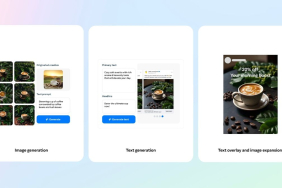Mark Zuckerberg, CEO of Meta, contemplated the possibility of divesting Instagram in 2018 due to mounting concerns regarding potential antitrust investigation, as revealed in a document presented during a trial in Washington on Tuesday.
This document emerged during Zuckerberg’s second day of testimony in a critical trial in which the US Federal Trade Commission (FTC) aims to dismantle Meta’s acquisitions of significant assets Instagram and WhatsApp.
“I wonder if we should consider the extreme step of spinning Instagram out as a separate company,” Zuckerberg noted in the memo, which was written at a time when the organization was exploring options to reorganize and tightly integrate its suite of apps.
While discussing the advantages of consolidation, Zuckerberg expressed concern that such a move might diminish the value of Facebook, the flagship app in Meta’s portfolio, hinting at uncertainties regarding the future of the company’s “family of apps.”
Ultimately, Meta chose not to spin off Instagram, instead opting to move forward with the integration of its applications the following year. The mere consideration of such a step underscores Zuckerberg’s awareness of the antitrust challenges now at the forefront of legal scrutiny.
He stated, “As calls to break up the big tech companies grow, there is a non-trivial chance that we will be forced to spin out Instagram and perhaps WhatsApp in the next 5-10 years anyway,” pointing to the potential actions that could arise with a change in administration.
Zuckerberg noted the need to consider various factors concerning the potential separation of these apps, even if the company desired to maintain their cohesion.
The FTC’s legal action against Meta commenced in 2020 amid Trump’s presidency, which also saw similar antitrust challenges against Alphabet’s Google.
In his memo, Zuckerberg minimized the implications of a spinoff on Meta’s financial health, despite the company maintaining that any breakup would have detrimental consequences. He reflected, “While most companies resist breakups, the corporate history is that most companies actually perform better after they’ve been split up.”
Zuckerberg’s testimony comes years after damaging statements from Facebook’s internal documents emerged, including a 2008 email where he stated, “it is better to buy than compete.”
The FTC alleges that Meta possesses a monopoly over platforms that facilitate content sharing, citing competitors like Snap’s Snapchat and MeWe, a smaller, privacy-focused app. They argue that platforms designed for content broadcasting, such as X, TikTok, YouTube, and Reddit, serve distinct market functions.
This case is viewed as a benchmark for the current administration’s commitment to addressing issues within Big Tech.
Earlier in the hearing, Zuckerberg explained that Meta’s acquisition of Instagram was motivated by the app’s superior camera capabilities compared to what his company was developing at the time. This acknowledgment seems to reinforce the FTC’s claims of a “buy or bury” strategy aimed at stifling competition.
When questioned about the potential threat posed by the rapidly growing Instagram, Zuckerberg affirmed that he deemed it superior due to its better camera technology during a “build vs. buy” assessment. “I thought Instagram was better at that, so I thought it was better to buy them,” he stated.
The company has contended that Zuckerberg’s previous thoughts are irrelevant, arguing that the FTC has mischaracterized the social media market and overlooked fierce competition posed by platforms such as TikTok, YouTube, and Apple’s messaging services.
Zuckerberg also conceded that several of Meta’s attempts to create its own applications had not been successful. “Building a new app is hard and many more times than not when we have tried to build a new app, it hasn’t gotten a lot of traction,” he explained. “We probably tried building dozens of apps over the history of the company and the majority of them don’t go anywhere,” he concluded.
© Thomson Reuters 2025
(This story has not been edited by NDTV staff and is auto-generated from a syndicated feed.)






